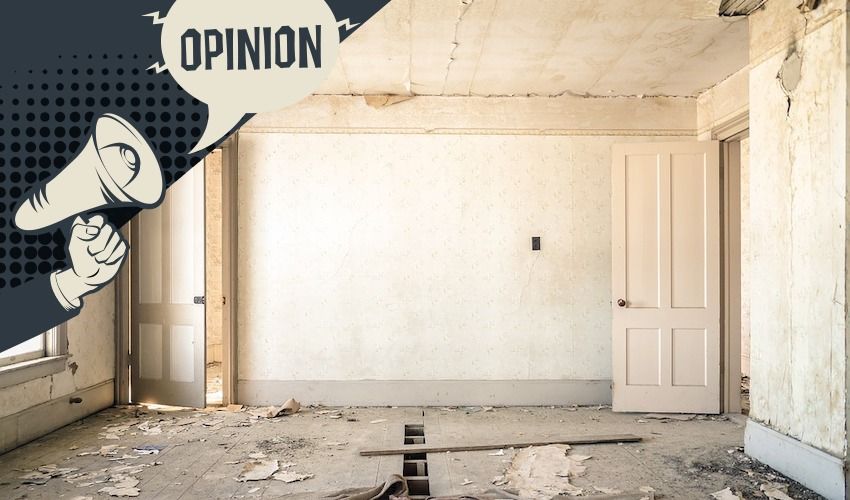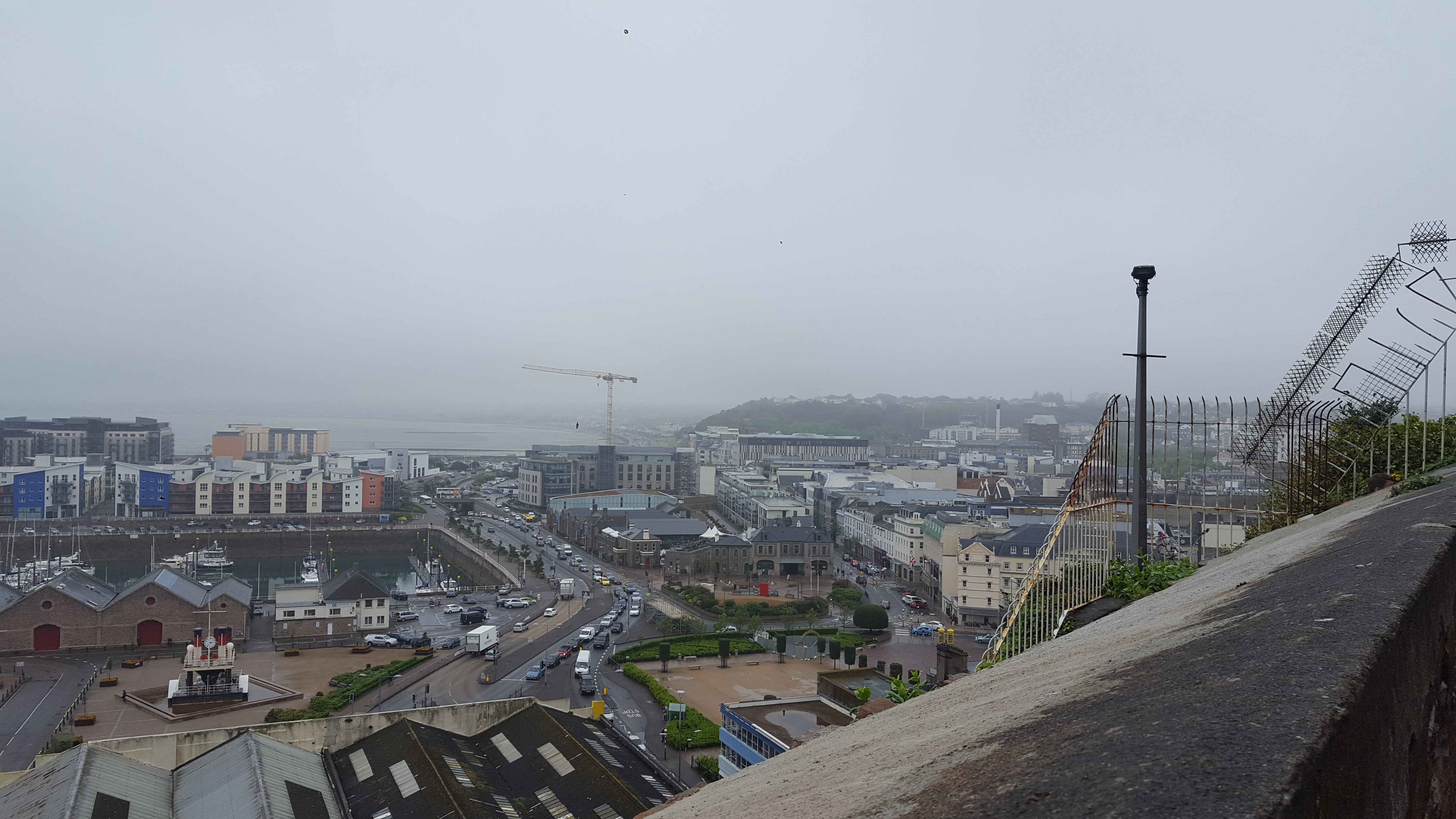


Has the Listing system gone too far? Are we preventing buildings of limited architectural and historical value from being developed into much-needed homes? And, if so, what needs to change?
For Michael Van Neste, Express columnist and founder of the Jersey Homes Trust, the time has come to "spring-clean the whole apparatus of protection"...
The draft 'Bridging Island Plan' is a brave attempt by Environment Minister Deputy John Young, for whom I have greatest respect, to re-zone green fields for housing development. I sympathise with his heavy responsibility. His irreconcilable duties of protecting the countryside whilst zoning enough land for housing development are both doomed to failure.
A predecessor of John’s was the late Rob Duhamel, for whom my respect was somewhat less enthusiastic, but he did have his points.
In one lecture I attended there was, on the inevitable screen, a picture overlooking swathes of town, which he called the bowl of St Helier. This, he told us, provided the sites for future housing needs. The present low-rise, low quality, squalid (my insertion), mess (I fear that is my contribution, also) of unplanned development can provide the sites for planned, modern, higher and denser solutions.
I was in total agreement.

Pictured: "Hundreds of properties in Jersey are “listed” only because of their age," Mr Van Ness said.
The problem he ignored was that every building older than 100 years, or considered to be a good example of some redundant use, or designed by some respected but long-dead architect, or loved by somebody because they like to walk past it, is protected. It is “listed” because somebody, not the owner, not a mortgagee, not a tenant or anybody with a vested interest, has imposed their own opinion over somebody else’s property with total disregard for common sense, fellowship or sympathy.
There are degrees of protection offered by such “listing”. Nobody would argue with protection of buildings of unique and important architectural or historical interest. In fact, the process of their “listing” is hardly necessary.
Other buildings are not so blessed but, for peace and understanding, I would not necessarily object to their “listing”. I recognise the benefits of careful and sensitive preservation. Such preservation should not damage the proper, healthy, regeneration and evolution of the built environment. A balance has to be struck.
Unfortunately, the system has run amok, which will damage its credibility eventually. Hundreds of properties in Jersey are “listed” only because of their age. Preservationists classify “old” as “historical”, exhibiting a sad ignorance of their language and a shameful lack of empathy. They condemn other people to inhabit homes into which they would not care to insert a toe.
It makes them feel good, on their infrequent visits to our capital, to see rows of shabby cottages, some blessed with wooden window frames, though sadly lacking in quaintness. It makes them feel comfortable that everything is the same as last time they came by, and the time before that.

Pictured: "Old properties, some redundant, without architectural or historical value, are listed as of 'special public and heritage interest'," argues Michael Van Neste.
Old properties, some redundant, without architectural or historical value, are listed as of “special public and heritage interest”, a meaningless category, except to confirm, in my view, that preservation is not merited. Such properties, by definition, have failed an undemanding test, as administered in Jersey, of historical or architectural value. Make no mistake; that listing should condemn any property as needing, dying for, demolition and re-development. The bowl of St Helier should be largely bull-dosed, and a good thing too.
Without the intervention of eccentrics and politicians, old, redundant, horrible buildings are demolished to make way for new, attractive buildings, fit for purpose, benefitting from modern design, materials and standards. The built environment evolves, and so it should. In Jersey, the natural order of replacing old with new has been turned on its head.
I was saddened by John Young’s plans to re-zone green fields and I felt for him. He would do better to spring-clean the whole apparatus of protection, for which his Department is responsible, discarding whole chapters of damaging and futile nonsense, to produce a Town Plan for re-development of swathes of St Helier.
Comments
Comments on this story express the views of the commentator only, not Bailiwick Publishing. We are unable to guarantee the accuracy of any of those comments.